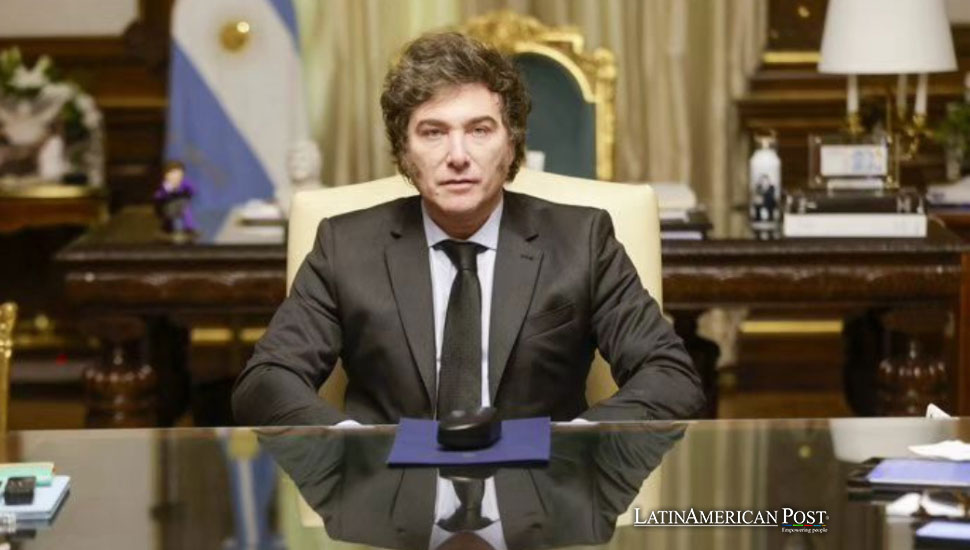Milei’s Radical Austerity Measures and Their Impact on Argentines

In a revealing BBC interview, Argentina’s President Javier Milei, known for his extreme austerity measures symbolized by a chainsaw, insists that the political elite, not the ordinary people, bear the cost of his economic policies.
Argentina is facing one of its most challenging economic periods under the leadership of President Javier Milei, a figure whose radical austerity measures have sparked intense debate and widespread concern. Since taking office in December, Milei, a right-wing economist and former TV pundit known for his dramatic campaign symbol of a chainsaw, has implemented severe cuts to reduce the country’s significant government spending and debt. However, these measures have led to substantial hardships for ordinary Argentines, contradicting the president’s assertions that the political class is bearing the brunt of the impact.
Austerity Measures and Economic Turmoil
The president’s policy drive comes after years of high inflation and economic instability in Argentina. Inflation soared even higher immediately following his assumption of office, despite being touted as the highest annually in the world. While there has been a slight decline in inflation rates since then, the economic adjustment has come at a high cost to the populace.
In just five months, Milei has drastically reduced public sector jobs, cut energy and transport subsidies, and devalued the currency, effectively diminishing the purchasing power of ordinary citizens. These actions have led to protests across the nation and plunged many into financial uncertainty.
During a recent interview with the BBC in his presidential office—an eclectic space adorned with memorabilia including a Rolling Stones photo and a toy chainsaw—Milei defended his policies vigorously. He claimed his administration was primarily trimming the fat of the political class, not stripping the ordinary people of their necessities. Yet, on the streets of Buenos Aires, the reality appears starkly different.
Julia, a 72-year-old retired chef, epitomizes the struggle many Argentines face. To supplement her meager pension of about US$190, she travels two hours daily to sing in the bustling avenues of Buenos Aires. Tearfully, she shared her plight, illustrating the direct impact of Milei’s economic strategies on her life and many others in her position.
Disputed Claims and Economic Realities
Despite such testimonials, President Milei refutes claims that his policies disproportionately affect the poor and vulnerable. He argues that 90% of the austerity measures target the political elite, and only a minimal portion affects public spending on essentials like pensions. However, independent analysts challenge this assertion, estimating that pension spending has been cut by 30-40% in real terms. This discrepancy raises questions about the accuracy of Milei’s claims and the transparency of his administration.
The interview further revealed Milei’s dismissive attitude towards individual hardships, as he emphasized the need for macroeconomic evaluations over anecdotal evidence. His critics, however, point to the tangible price increases in everyday items like milk, which has doubled since he took office, as precise indicators of the policies’ immediate effects on ordinary people.
Despite the backlash, some supporters, like Nicolás Vargas, who struggles alongside his partner to make ends meet, are willing to give Milei’s policies time to bear fruit. They believe that Argentina’s prolonged economic crisis cannot be resolved overnight and express hope that Milei’s tough decisions might eventually lead to stability.
This perspective is echoed by President Milei himself, who remains steadfast in his conviction despite growing criticism. He insists that his strategies will pave the way for a more prosperous future, arguing that the alternative—continuing to print money and inflate the economy—would have been far worse.
Immediate Impact on Vulnerable Communities
However, in the soup kitchens of Buenos Aires, the immediate consequences of these policies are palpable. Vanessa López reports a significant increase in demand for meals, with families who never needed assistance before now relying on charity for basic sustenance. This uptick is a direct counterpoint to Milei’s narrative, highlighting the gap between policy intentions and real-world outcomes.
Also read: Argentina’s Milei Again Seeks Radical Economic Overhaul with New Bills
As Argentina navigates this turbulent period, the debate intensifies around the actual cost of austerity and who pays the price. President Milei may not shy away from his controversial methods. Still, as the nation grapples with the repercussions, the voices of ordinary Argentines like Julia and the increasing crowds at soup kitchens present a compelling narrative of hardship and resilience. This ongoing economic saga continues to unfold, leaving the world watching closely as Argentina tests the limits of austerity and its impact on the fabric of society.





